Domestic church. Family, live your mission!
Pastoral webinars for the American continent
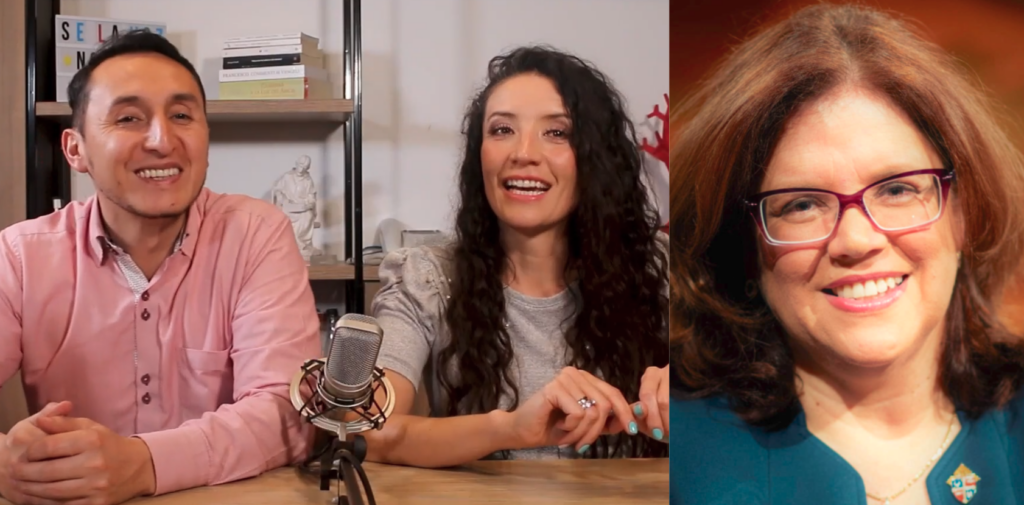
Within the framework of a series of webinars aimed at delving into the four pillars of pastoral ministry: Family, Youth Ministry, Social Justice and Pastoral Formation, organized by the National Catholic Council for Hispanic Ministry in the USA -NCCHM-, in alliance with the Training Center of the Latin American Episcopal Council – CEBITEPAL -, for the American continent, its first edition was offered on March 6.
It was presented by the president of NCCHM, the Puerto Rican Elisabeth Román, and by the Brazilian Fr. Fabio Antunes do Nascimento, director of CEBITEPAL and Deputy Secretary of the General Secretariat of CELAM. The leadership was led by the vice president of NCCHM, the Argentine Enrique Soros.
Each of the four pastoral pillars stated will take four consecutive Wednesdays in a month. Together they will cover March, April, May, and June, always at 6:00 p.m. in Bogotá and at 7:00 p.m. in Miami. The Family webinar takes place on four Wednesdays of March. It started last Wednesday.
The Family theme revolves around the motto: “Domestic Church. Family, live your mission!” In the first session, the topic was discussed: “Forming harmonious marriages.”
Catechumenal Itineraries for Married Life
In the first part, Carla Ferrando-Bowling, Master in Marriage and Family from the University of Navarra and President of the Hispanic Federation for Family Pastoral Care in the USA, presented a synthesis on the Catechumenal Itineraries for Married Life, emphasizing the importance of its implementation in parishes and dioceses, with the aim of training couples in the vocation of marriage, not only for the wedding day but for their entire lives.
She recalls that Pope Francis asks that marriage preparation be an integral part of the entire sacramental marriage procedure “as an antidote to avoid the proliferation of null and inconsistent celebrations…” (Address to the Roman Rota, 2017),
Carla also shared suggestions and resources for the implementation of the itineraries, taking into account the existing realities of the countries of the American continent. She also highlighted the value of working in a spirit of synodality, in a collective pastoral care. The goal is for dioceses, parishes and united ecclesiastical movements to serve the marriages and families that God has entrusted to them.
The Holen
In the second part of the webinar, Luisa and Leonardo, known as “Los Holen”, offered their contribution. They have been husbands for eight years. Luisa is a Business Administrator and Leonardo is a specialist in Marketing Management. Both have Master’s degrees in Marriage and Family Sciences from the Pontifical John Paul II Theological Institute in Rome, and have completed different diplomas in Family. Leonardo is currently pursuing a master’s degree in Theology, and Luisa is pursuing a certification in the Gottman Method at the John Paul II Institute in Mexico. Within the pastoral ministry in the Church, they have accompanied young people in youth groups, engagements and marriages, among others. They have a project in training and accompaniment in the maturation of love for dating couples, couples who live together or married couples. They can be found on Instagram as “@losholen” and on Facebook as “los holen”.
Love is not just an emotion, nor just a feeling, it involves a decision
Luisa and Leonardo divided their contribution into three parts. The first was about the importance of being clear that emotions and feelings, although essential, are not enough to form a stable relationship. For married life to be fruitful, it is essential to make decisions and be consistent with them.
They explain that emotions are a gift from God, “experiencing an emotion is not something morally good or bad in itself […] what is good or bad is the act that one performs motivated or accompanied by a passion” (AL . n. 145), can be deceptive, which is why we need discernment in the midst of emotional confusion. Emotions move us and give life, thanks to them we feel alive, but by their very nature they are short, fleeting and therefore we cannot reduce love to just an emotion. Pope Francis has warned: “Believing that we are good just because we ‘feel things’ is a tremendous deception” (AL, n. 145). The fact of making decisions, or acting impulsively only taking into account the emotion at the moment, is what is known as emotivism.
And they develop the reality of those who live on emotions. Such a person is fragmented, disoriented, and lacks roots that help them grow, and they conclude this topic with important advice to generate deep and stable bonds.
The construction of “we” as a challenge of married life
In the second part, Luisa and Leonardo emphasize the importance of constructing a “we”, and explain: This way of saying it as a ‘construction of we’ is very close to people and couples, which supports the internalization of the meaning that it has the intimate communion of life and love to which spouses are called by virtue of the sacrament of marriage; the call to “continually grow in their communion through daily fidelity […] to total reciprocal giving (CIC #1644).”
And they close this part by stating that “this construction of we is not only between the spouses, but between the spouses with God, since the couple has known each other gradually and over time, we can also accompany it to be with the person of Christ, what is cultivated in all moments of life, and in the different accompaniments. From remote preparation there is a great opportunity in the close and immediate preparation for the sacrament of marriage, as well as in accompaniment during the first years of married life, promoting in the couple that their hearts are closer to the heart of Christ and desire as spouses continually and firmly achieve the configuration of your hearts with the heart of the Lord; truly finding the close link that exists between life of faith and emotional life.”
Harmony in marriage, an artisanal construction
Finally, based on their experience, they share their vocation as “artists of marriage,” revealing that daily creativity is the essence of the relationship. In this regard, they affirm that this construction is artisanal, an expression that Pope Francis has coined on different occasions, when referring to the fact that marriage is also an everyday job, I could say an artisanal job, a goldsmith’s job, because the husband has the task of making his wife more of a woman and the wife has the task of making her husband more of a man (6). The Pope specifies that “marriage cannot be understood as something finished,” and rightly so, marriage is unfinished to the extent that the man and the woman are each “unfinished, called to grow, in process” (AL n. 218), called to grow and to make people grow with work.
They add that for this harmonious construction of marriage, a conscious growth in the virtues is necessary, where we need to rediscover the importance of overcoming only the concept of values, to work harder on the virtues, which certainly embrace the values, but if we only maintain the cultivation of values we run the risk of “choosing” the values that we want to live and this presents a risk of subjectivity according to the culturally predominant values. We could say, in summary, that values fall “short” for the challenge that married life implies. In contrast, it generates a true impact for the construction of a harmonious marriage, that, as spouses and from the courtship, we seek a virtuous relationship, where a virtuous circle of love is harmoniously cultivated.
And they conclude by sharing that “this form the Church, in its mission, must accompany it gradually and creatively, presenting the close bond of faith and affection. This translates into the harmonious, human and spiritual formation of a person and a couple, assuming the challenge of accompanying them in the transition from being emotivists to living truly Christian relationships from courtship, continuing into marriage.”
Information and registration for webinars
These training meetings have found a wide echo in the community of the American continent. More than 500 people have registered for the first meeting, and these have generated great expectations for what follows.
The next edition will take place on Wednesday, March 13. Paola and Mario Martínez, Directors of the Office of Marriage Pastoral of the Diocese of San Bernardino, in California; Father Felipe Ríos, Family and Marriage Advisor of the Schoenstatt Movement in Ecuador and Continental Coordinator of the same Movement in America; and Carla Ferrando-Bowling will be the speakers on the topic: “Rediscovering sacramental grace.” Registration is accessed through this link.
Regarding the first session, we share the most important links.
Through this link you can access Carla’s presentation on the Catechumenal Itineraries for Married Life.
https://ncchim-us.org/wp-content/uploads/2024/03/Itinerarios-Catecumenales-para-la-vida-familiar.pdf
The complete summary offered by Los Holen about their exhibition can be accessed through this link.
https://ncchim-us.org/wp-content/uploads/2024/03/HOLEN-PDF-texto-resumen-matr-en-armonia.pdf
To access the graphics from Los Holen’s presentation, click here. https://ncchim-us.org/wp-content/uploads/2024/03/WEBINAR-HOLEN.pdf
All information is available on the website of the National Catholic Council for Hispanic Ministry in the USA -NCCHM- https://ncchim-us.org.
Links to the first webinar with subtitles in Spanish, Portuguese and English will be offered shortly on the aforementioned NCCHM page for anyone interested, and by email and WhatsApp to those who have registered for the webinars.
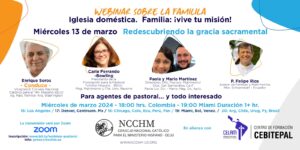
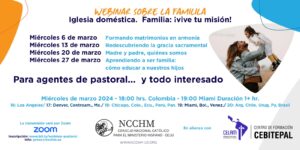
Related
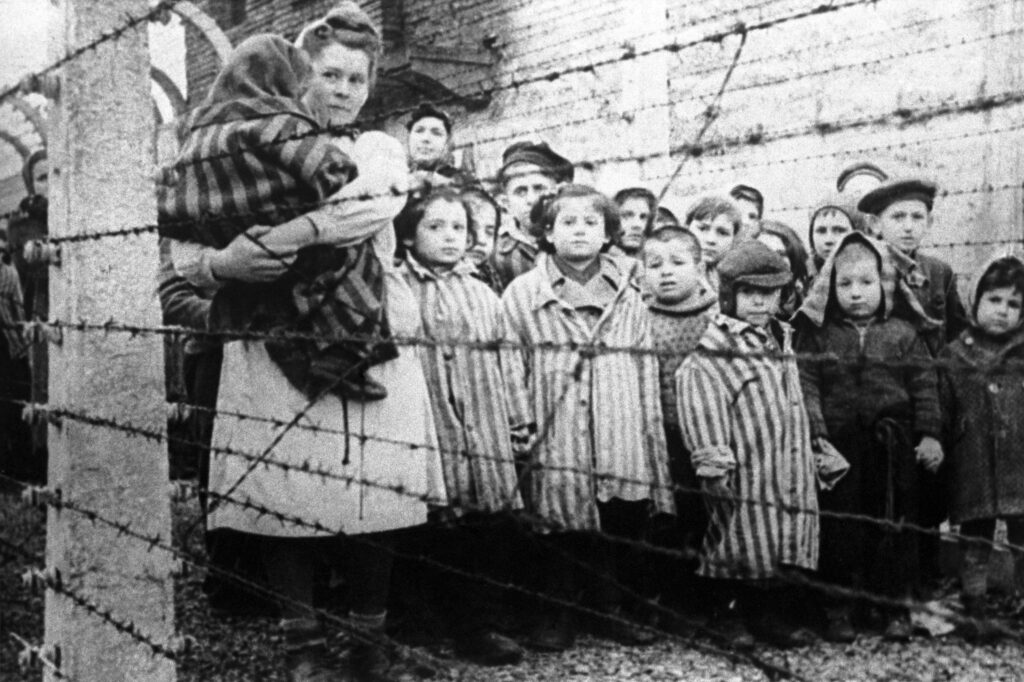
“I Will Never Be Herod for the Innocents”
Wlodzimierz Redzioch
14 April, 2025
6 min
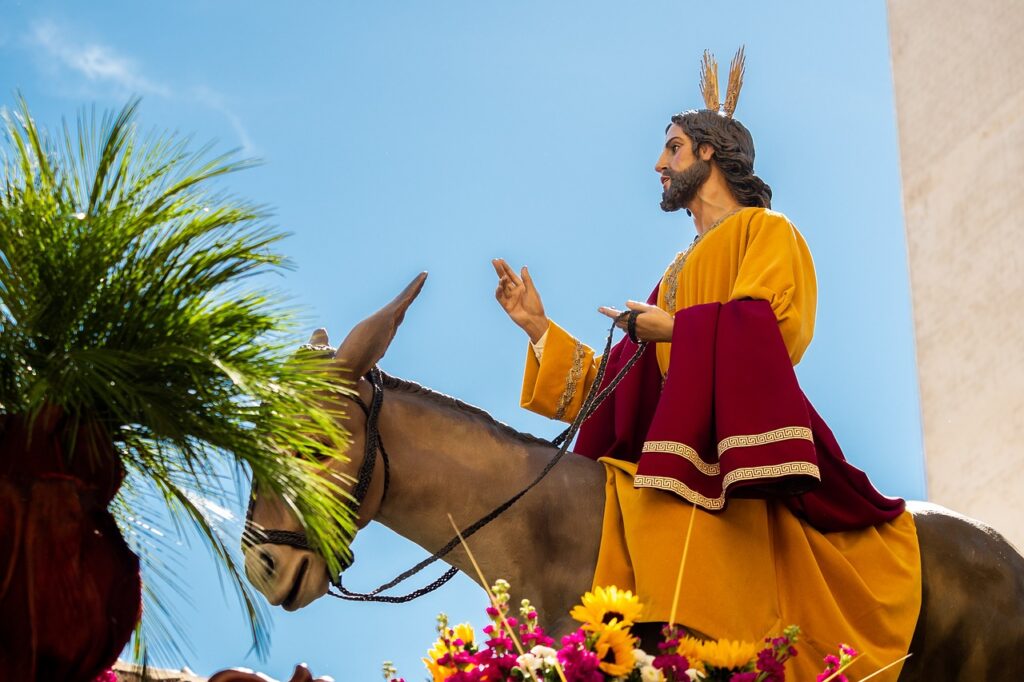
Reflection by Bishop Enrique Díaz: On a Donkey
Enrique Díaz
13 April, 2025
5 min

I have ardently desired to eat this Passover with you: Fr. Jorge Miró
Jorge Miró
12 April, 2025
2 min
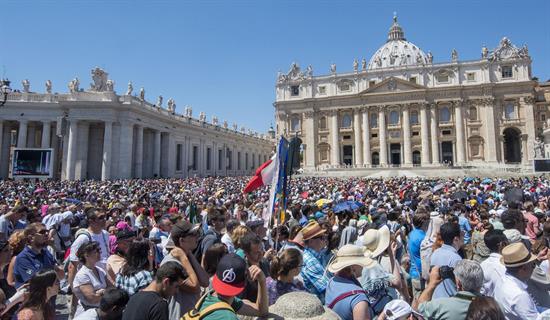
Pope Francis Sends a Message of Hope to the Young People of the UNIV 2025 International Congress
Exaudi Staff
11 April, 2025
5 min
 (EN)
(EN)
 (ES)
(ES)
 (IT)
(IT)

